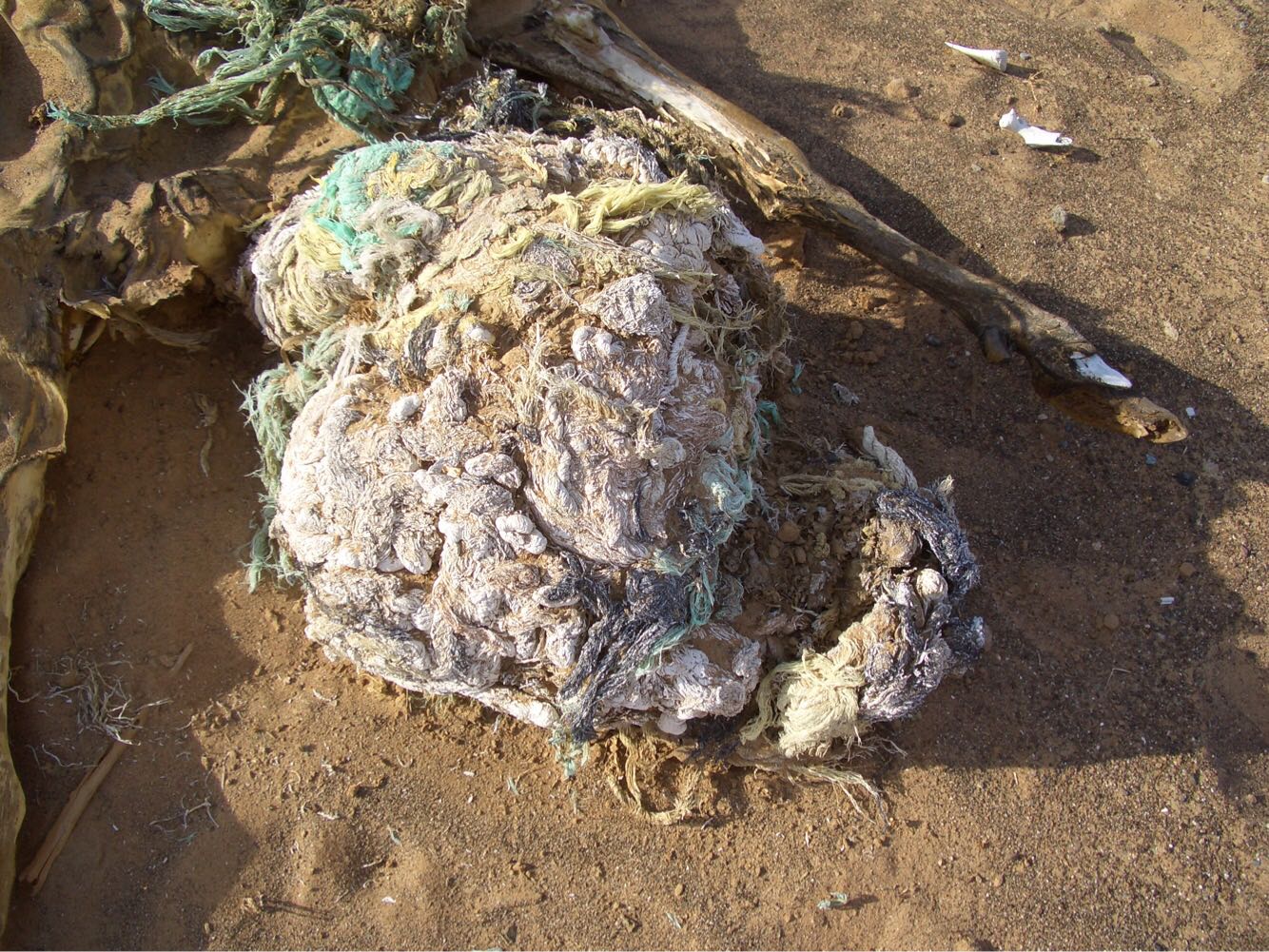Amsterdam, 9 January 2018 – Every week, Dr Ulrich Wernery performs a necropsy on camels. The Director of the Central Veterinary Research Laboratory in Dubai has been doing this for years. He finds plastic in almost every camel’s stomach. Not just a little plastic, but an unimaginable amount of plastic. Given that the camels cannot digest the plastic that they eat, the plastic accumulates in their stomachs, forming larger and larger clumps. It is estimated that one of every two camels in the United Arab Emirates dies of plastic consumption. The picture shows the largest clump of plastic that Dr Wernery has found to date – a couple of hundred plastic bags, nylon twine and rope, weighing 52 kilos.

When Dr Wernery sees a thin camel, he knows for sure that it has plastic in its stomach. The plastic in the stomach gives the camel a full feeling, and it starts eating less and less. On top of this, the plastic blocks the digestive tract. Of course, it is not only camels that die from ingesting plastic, it is also cows, goats, gazelles and sheep. Read an interview with Dr Wernery here.
The American photographer and filmmaker, Chris Jordan, known for his shocking photos of dying albatross chicks on Midway island, filmed a lump of plastic like this two years ago.
Dr Wernery has been warning about this phenomenon for more than ten years. Unfortunately, it has not led to any changes. Camels continue to die because so many people leave plastic behind in the desert and nobody cleans it up.
Photo’s gratitude dr. Wernery.






